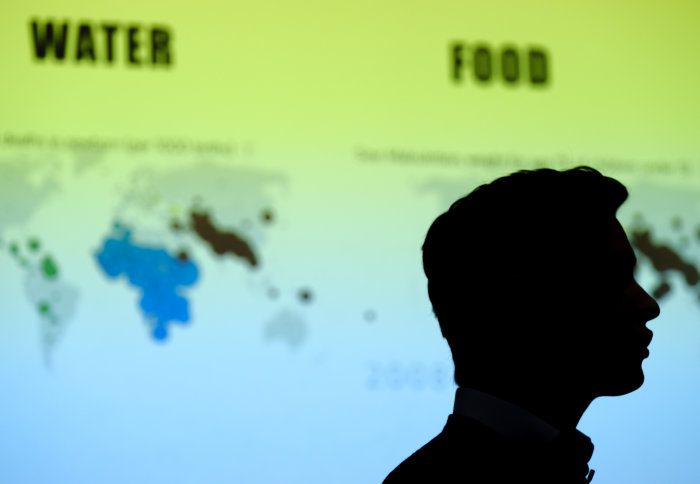Fighting back against parasitic worms: A winning idea

Meet the winners of IGHI’s Student Challenges Competition, who are leading a new project to tackle parasitic worms.
The Institute of Global Health Innovation is proud to announce the winners of its sixth Student Challenges Competition. The duo behind Capta, a new device to improve the speed and accuracy of diagnosing parasitic worms, took home first prize on Tuesday.

Four other teams battled it out at the annual Dragon’s Den-style event at the College, which is designed to enable student innovators to pursue their ventures to improve global health. The breadth of ideas spanned from a smart sock to reduce foot problems in diabetics to systems that automate vaccine delivery and provide clean water.
Each finalist had just 8 minutes to pitch their idea to our panel of expert judges, followed by a round of gruelling questions.
Alongside the top prize two other awards were given at the event – runners up and audience choice. Both of these went to the pair of medical students behind VUI Diagnostics, who are aiming to help doctors detect eye diseases earlier using their novel imaging device.
Introducing Capta
Imperial engineers Laura Braun and Kai Riemer are the brains behind Capta. They made clear the clinical need behind their project: it’s estimated that some 1.7 billion people across the world are affected by parasitic worms like the blood flukes that cause schistosomiasis. This comes with great economic and health costs, particularly in vulnerable communities in developing countries where poor hygiene and sanitation offer a breeding ground for the parasites.

Currently infection is diagnosed through stool sample analysis using a microscope. This requires trained workers and expensive equipment. Capta hopes to transform diagnosis for the better with their low-cost, rapid diagnostic system. They’re building a microscope attachment for smartphones that requires minimal training and uses software to identify infection, reducing human error and enabling more accurate disease modelling and monitoring.
They hope this will lead to earlier detection of infection and allow people to get the treatment they need before the infection progresses. If successful, they hope to apply the technology to other diseases that require diagnosis via microscope.
The team has spent just £150 so far. Now they have £5,000 thanks to this award to pursue their project further and begin trialling the device in Ethiopia.
Eyes on the prize
In second place and the audience favourite, Simon and Rabinowicz and Uddhav Vaghela brought VUI Diagnostics to the judges. They believe there is significant need for innovation in retinal screening, which is dominated by the traditional yet dated ophthalmoscope that the duo describes as “slow, subjective and inaccurate”.
They want to replace this ageing technology with something simpler and more affordable that offers greater accuracy, without the need for highly skilled individuals to perform the screen. They’ve created a plug and play retinal imaging device that they claim provides 10-fold greater detail of the retina than the ophthalmoscope, while costing 50% less.

Their standalone system uses artificial intelligence to interpret the results, making analysis less subjective while also building a bank of data to improve understanding of eye diseases.
The determined duo has already partnered with the Macular Society and two NHS hospitals. Now they’ll use the £3,500 prize money to continue product validation research and pursue clinical studies.
We hope you’ll join us in congratulating both teams and all the finalists for their brilliant presentations and admirable determination to bring positive change to the lives of people across the globe.
We look forward to seeing how these ambitious projects grow and wish them every success.

All images copyright 2019 Owen Billcliffe.
Article text (excluding photos or graphics) © Imperial College London.
Photos and graphics subject to third party copyright used with permission or © Imperial College London.
Reporter
Justine Alford
Institute of Global Health Innovation